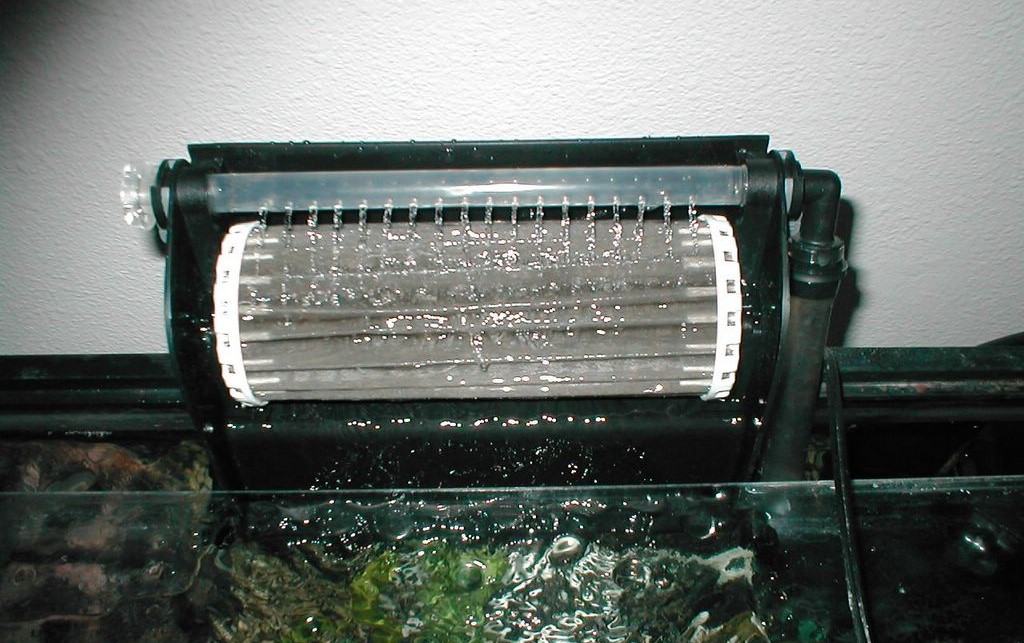Maintaining tanks is a painstaking but necessary process so that you can ensure your animals are living in the ideal conditions that are best for them. Tank maintenance includes water filtering, which can be done using a bio-wheel filter.
But sometimes you may see your bio wheel not spinning. This can be due to factors like a low water level, a dirty bio-wheel, or even a broken one.
In this article, we’ll discuss a bio wheel filter, why it’s not spinning, when you should replace it, and other related topics.

Table of Contents
What is a bio-wheel?
A bio-wheel is one type of biological water filter. These are devices that provide living space for beneficial bacteria to filter the water in the tank.
These beneficial bacteria that usually live in bio-wheels also live on the gravel at the bottom of the tank, on the glass panels, even on the ceramic ornaments or plastic plants.
Why do I need a bio-wheel filter?
In nature, freshwater and saltwater environments are never truly stagnant. They have an ecological balance that allows all living organisms that call them home to be healthy. All organisms living there contribute to the balance of the nutrients in the water, and environmental conditions like sunlight exposure and temperature changes are natural. Even the food chain is perfectly cyclical.
But this is not the same for aquariums. Aside from making sure the animals are not stressed living in captivity, you also have to make sure the tank resembles their natural habitat as much as possible.
As a man-made ecosystem, you have to make sure the nutrient levels are adjusted accordingly, the water temperature is ideal, light exposure is appropriate, and the cycling of water is regular.
Maintaining tanks is a painstaking but necessary process so that you can ensure your animals are living in the ideal conditions that are best for them, And tank maintenance includes water filtering, which can be done using a bio-wheel filter.
Why is my bio-wheel not spinning?
When bio-wheels do not spin, there are only a few possible reasons for this.
The most obvious one is that the water level is low. While bio-wheels spin in both air and water, there is a certain water level for each bio-wheel to spin properly.
Another possible reason is the filter system or bearing needs cleaning or the bearings got removed for some reason. When the bio-wheel gets too loaded with dirt, it stops moving. In this case, you only need to remove the filter from the tank and clean it. To be thorough, you should dismantle the filter, clean it with warm water and distill it with white vinegar.
When should I replace my Bio-Wheel? How long does a bio-wheel last?
Bio-wheels are good as long as they are not damaged. There is no need to replace them.
The only thing that gets replaced usually in bio-wheels is the filter pads. When the filter pads get clogged, you need to change them since they are not cleanable like the system filter or the bearings.
What does Marineland Bio-Wheel do?

The Marineland Bio-Wheel is a product from the well-known brand, Marineland.
While most biological filters are dependent on the amount of oxygen in the water, which is not much considering oxygen is not very soluble in water, bio-wheels like the Marineland Bio-Wheel spin in the air and water.
Because beneficial bacteria digest the waste with oxygen, bio-wheels spin to expose all of the beneficial bacteria to oxygen sources. Additionally, since water has limited oxygen, the bio-wheels have to spin so that the beneficial bacteria in all the flaps get exposed to oxygen from the air.
Since air is much more abundant in oxygen than water, oxygen on the surfaces of the bio-wheel replenishes rapidly. In turn, the beneficial bacteria can also rapidly filter the water and oxidize the toxic wastes in the water. Additionally, the spinning also makes the distribution of the non-toxic elements more distributed in the water.
How important is a tank bio-wheel?
As previously mentioned, a bio-wheel is a type of water filter that uses biological filtration. This type of filtration is done by certain beneficial bacteria digesting liquid wastes such as ammonia dissolved in the water along with oxygen.
The bacteria then reproduce these wastes and toxins into non-harmful and usually beneficial forms such as the less toxic nitrites, clean water, and even some form of energy.
What are the benefits of a bio-wheel?
First and foremost is the return of the investment. Because bio-wheels are mostly self-sufficient and don’t need frequent replacements, they can be considered as long-term investments in your tank.
Also, compared to mechanical filtration and chemical filtration, bio-wheels filter the water more thoroughly and in a more environmentally-friendly way. It filters both solid and liquid wastes and does not use disposable filters like a thin sponge or floss material or chemical filters like carbon or zeolite.
How often should you change your aquarium bio-wheel?
You can go on for months without changing your bio-wheel. Most bio-wheels are also self-cleaning, there is also really no need for its maintenance. The only time you need to step in is to clean it when it gets loaded down with waste that it stops moving.
Water filtration is important for the animals living in your aquariums. It ensures that your fishes are healthy. Filtering water keeps the water clean of debris and removes toxic contents like the buildup of ammonia, nitrates, and aerates in the water. Good water quality allows your fish to breathe.
Did you learn from this article? Take a look at our other aquarium articles!